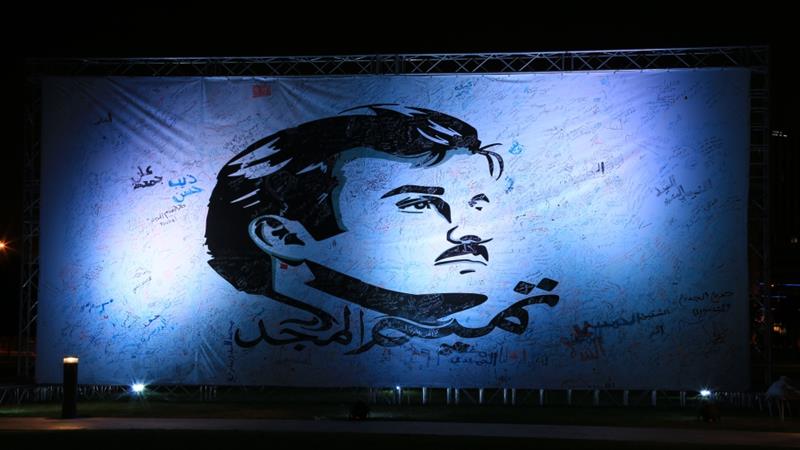Home » World News »
Qatar FM: 'Too early to talk about real progress with Saudi'
Speaking to Al Jazeera, Qatar’s foreign minister says time is needed to rebuild trust between Doha and its neighbours.
Qatar’s foreign minister has said it was premature to talk about real progress with Saudi Arabia over the blockade but opening channels of communication between Doha and Riyadh was a step forward.
In an interview with Al Jazeera, Sheikh Mohammed bin Abdulrahman Al Thani said it will take time to rebuild trust between Qatar and its Gulf neighbours after the two-and-a-half-year air, sea, and land blockade was imposed.
“We are still at a very early stage,” he said. “There is some progress … because we have [broken] the stalemate with the Saudis.”
More:
-
Qatar sees ‘small progress’ in resolving Gulf dispute
-
40th GCC summit: The beginning of reconciliation?
-
Qatar foreign minister: Gulf crisis has ‘moved from stalemate’
In June 2017, Saudi Arabia along with the United Arab Emirates (UAE), Bahrain and Egypt severed diplomatic and trade ties with Qatar, accusing it of supporting “terrorism”.
Doha has denied the allegations and accused its neighbours of seeking to curtail its sovereignty.
Sheikh Mohammed said the terrorism accusation has been proved to have “no basis at all” by the international community.
The blockading nations have demanded that Qatar cease interactions with their rival Iran, shut down Al Jazeera Media Network, and close a Turkish military base.
The foreign minister said Qatar will not offer any concessions that will “affect our sovereignty and interfere with our domestic or foreign policy”.
“From our perspective, we want to understand the grievances and we want to study and assess them, and look for the solutions that can safeguard us in the future from any other potential crisis,” said Sheikh Mohammed.
In recent weeks, there have been signs pointing to a possible thaw in relations between Saudi Arabia and Qatar.
Last month, the Wall Street Journal reported that Sheikh Mohammed met senior Saudi officials in October in a bid to end the rift.
In November, the three Gulf blockading countries took part in a regional football tournament in Qatar, reversing at the last minute an earlier decision to not participate.
‘No winner’
Last Tuesday, Qatari Prime Minister Sheikh Abdullah bin Nasser Al Thani attended an annual Gulf Cooperation Council (GCC) summit in Saudi Arabia, its highest representation at the meeting since 2017.
The closed-door gathering lasted less than an hour before a final communique by the six-member bloc emphasised the need to increase military and security cooperation to maintain regional cooperation.
Sheikh Mohammed also stressed the need for the GCC to return to its role of representing the building blocks for any fruitful dialogue between the Gulf states and Iran.
“The work of the GCC has been affected by this crisis, and we hope to overcome many challenges next year,” he said.
“This situation has no winner,” he added. “We want to see a solution, a settlement that saves the dignity of all countries and declares them as owners of unity.”
Asked whether Qatar was ready to sever ties with the Muslim Brotherhood group – which the blockading countries consider a terrorist organisation – the foreign minister said: “We are a country, we are not a political party.
“Qatar has never supported the Muslim Brotherhood and it has never had a direct relation with the Muslim Brotherhood as a political party. As long as they participate in governments that are elected by their own people, we have to deal with those governments.”
Meanwhile, Iranian Foreign Minister Mohammad Javad Zarif said talks between Saudi Arabia and Qatar to heal their 30-month rift are a positive development for the entire Gulf region.
“Of course it is,” Zarif told reporters when asked at the Doha Forum in Qatar about the recent contacts.
Special series
Qatar: Beyond the Blockade
Source: Read Full Article




